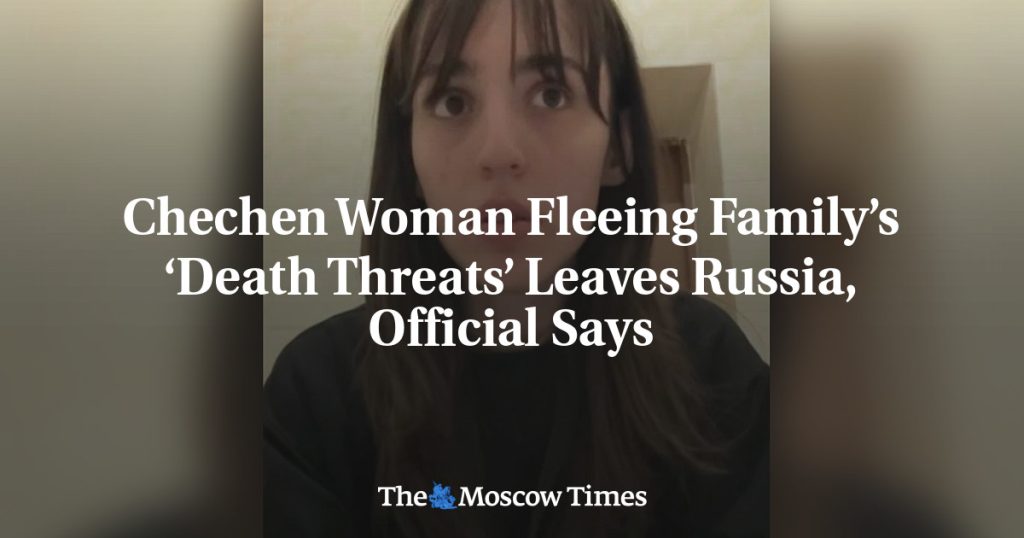A 19-year-old woman named Liya Zaurbekova fled Russia after alleging that she was physically and psychologically abused by her family in her native republic of Chechnya. After fleeing to Moscow earlier in the week, Zaurbekova noticed her father outside the apartment where she was staying and called the police for help. She was taken to a police station in Moscow, but a group of her relatives surrounded the building and demanded that she be handed over to them. Zaurbekova expressed fear of leaving the police station, fearing what her family might do if they grabbed her in front of officers.
On Friday, Alexander Ionov, a member of Russia’s presidential human rights council, informed journalists that Zaurbekova had left the country, though he did not disclose his role in her departure. It was mentioned that there were no death threats against Zaurbekova. Later that day, Natalia Tikhonova, Zaurbekova’s lawyer, confirmed that her client was safe outside of Russia. Adam Delimkhanov, a Russian federal lawmaker from Chechnya and an ally of Chechen leader Ramzan Kadyrov, had previously stated that he would personally take efforts to locate Zaurbekova.
Russian human rights groups have frequently raised concerns about domestic abuse against women in the conservative North Caucasus republic of Chechnya. The region, known for its traditional values and strict adherence to Islamic law, has been in the spotlight for cases of abuse, honor killings, and violence against women. The situation in Chechnya has been closely monitored by human rights organizations and activists who have been advocating for the protection of women’s rights and safety in the region.
Zaurbekova’s case sheds light on the challenges faced by women in Chechnya who are victims of domestic violence and abuse. The difficulty in accessing protection and support in such conservative and patriarchal societies makes it challenging for women to speak out against their abusers and seek assistance. The response from Russian authorities and human rights councils in addressing these issues remains crucial in providing a safe environment for women who are experiencing abuse.
The involvement of Russian federal lawmakers and Chechen officials in Zaurbekova’s case indicates the complex dynamics at play in addressing domestic violence in the region. The influence of local leaders and traditional norms can often hinder efforts to protect women and hold perpetrators accountable. Efforts to raise awareness, provide support services, and enforce laws protecting women’s rights are essential in combating domestic abuse and creating a safer and more inclusive environment for women in Chechnya and other regions facing similar challenges.
Zaurbekova’s escape from Russia highlights the urgent need for comprehensive strategies and policies to address domestic violence and protect women who are at risk of abuse. The collaboration between human rights groups, legal professionals, government agencies, and local communities is crucial in creating a supportive network for victims of domestic violence and ensuring their safety and well-being. By amplifying the voices of survivors and advocating for their rights, progress can be made in addressing the root causes of domestic abuse and working towards a society free from violence and discrimination against women.


